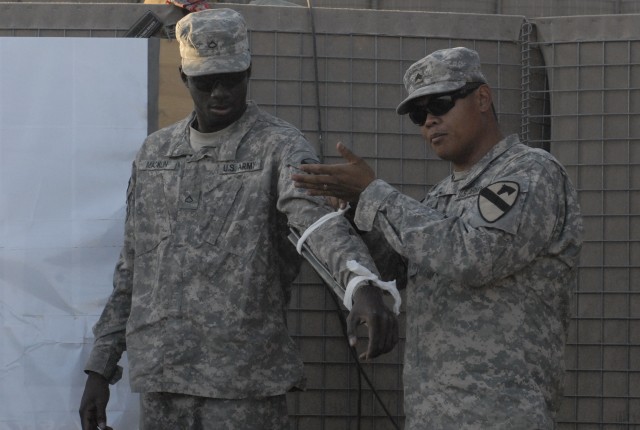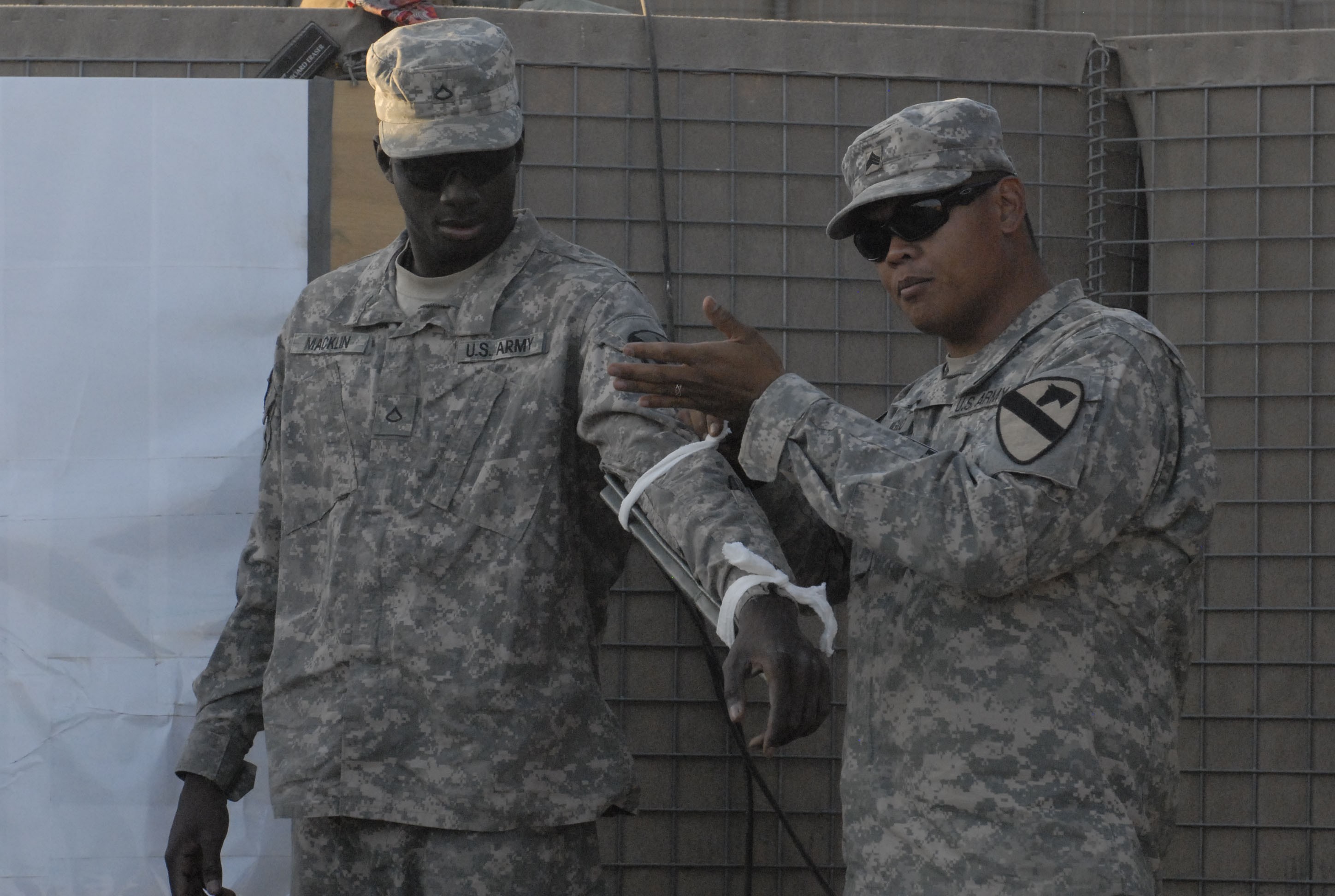
JOINT SECURITY STATION INDIA, Iraq- Combat medics assigned to A Co., 2nd Battalion, 7th Cavalry Regiment, 4th Advise and Assist Brigade, 1st Cavalry Division, provided training on how to properly splint fractures and broken bones at a checkpoint in Wanah, Iraq, Nov. 15.
Iraqi Army soldiers and Kurdish Security Force soldiers huddled around as the medics gave the class, demonstrating techniques on Pfc. Myron Macklin, a signal support systems specialist from Petersburg, Va.
Sgt. Lance Rossi, a combat medic from Boca Raton, Fla., began the class by informing the group of soldiers what the difference is between a closed and an open fracture.
After learning the difference, soldiers used Structural Aluminum Malleable (SAM) splints to support each other's simulated injuries. Partners rotated, so each person would have a chance to practice what they just learned.
"We're showing them the different ways to immobilize fractured bones and other injuries to prevent further damage," said Rossi.
"It's important that when we leave, they know how to take care of their own casualties," said Rossi.
"The training was really helpful," said Muhamud Mandi, one of the KSF members. "I learned that when someone breaks a bone, you can't move the bone because the bone is sharp and it can cut something vital on the inside."
"When we go out there, we work side by side, so they need to know these basic skills to help us and to also help themselves," said Sgt. Benjamin Jingco, a combat medic and native of Iloilo, Philippines.
"It's important that that we leave them with good, quality medical training," said Jingco.
Throughout the year, medics will give combat lifesaver classes to their IA and KSF counterparts to further enhance their training and capabilities.

Social Sharing